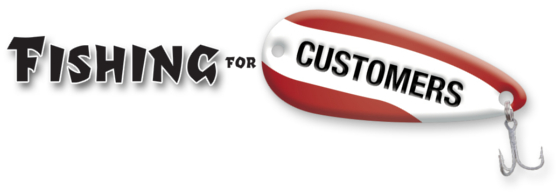 Imagine yourself the quarterback of a football team. You understand the game. You know what the goal looks like, and how to score.
Imagine yourself the quarterback of a football team. You understand the game. You know what the goal looks like, and how to score.
There’s only one problem. You don’t have any idea of where you are on the field.
You could be on your own 30-yard line. On the other hand, you may be within ten yards of your competitor’s goal.
What should your next play be?
Should you rush up the middle?
Should you try for the long forward pass?
Should you call in the place kicker?
Truthfully, you can’t answer this one. If you tried, shame on you. You’re gambling the future of your team without any idea of where you are or where you’re going.
Navigating Without Landmarks
I was recently discussing this tendency of business owners to “shoot blind” with Wizard of Ads® partner, Michael Keeseee, who directed me to the February 19, 2008 issue of Fortune Magazine, and an article titled The Pepsi Challenge.
“Nooyi also gave a pivotal presentation to the board in 1998 – just as the heat from Coke was becoming unbearable – that dissected the rival’s business model and made a persuasive case that its double-digit growth was not sustainable.
“It was a tour de force,” says Enrico, who is convinced that “at that moment the PepsiCo board understood Coke’s business model better than Coke’s board did.” Four months after the presentation Coke stock peaked at $88 and began a long downward slide.”
Can you imagine knowing your competitor’s business so well that you could predict how that competitor will react to various changes in the marketplace? What might Coke do if the price of corn syrup went up by 10 percent? Could Pepsi know which preemptive moves to take for that, or for any other business eventuality?
Based on their stock prices since 1998, the answer appears to be, “yes.”
But, if you’re not one of the big guys…
OK. Granted, the world’s a different place for two corporate behemoths who can afford hundreds of analysts each to do nothing but gather business intelligence and study each other.
But, I remember a weekend in 1979 in which the general manager of the company I worked for took the entire management team away for the weekend. Our mission? To presume the next Presidential election’s possible outcomes, and to predict our competitor’s actions under each scenario.
I don’t believe it was coincidence that over the next two years we grew 17 percent and 22 percent respectively.
How well do you know your competitors? Do you know where your goal is? How accurately can you gage your own field position?
Can you afford not to sequester your key employees for a weekend of brainstorming, before you next go fishing for customers?
Your Guide,
Chuck McKay
 Your Fishing for Customers guide, Chuck McKay, gets people to buy more of what you sell.
Your Fishing for Customers guide, Chuck McKay, gets people to buy more of what you sell.
Got questions about understanding your competitors as well as they do themselves? Drop Chuck a note at ChuckMcKay@ChuckMcKayOnLine.com. Or call him at 304-208-7654.

I think that's what what companies really do. They study the operations of other companies to know how they can beat the competition. That was even indicated in Sun Tzu's Art of War. It's a clean and effective strategy, as compared to coming up with baseless accusations. We're all trying to operate in a healthy business environment, so our practices should also be decent.